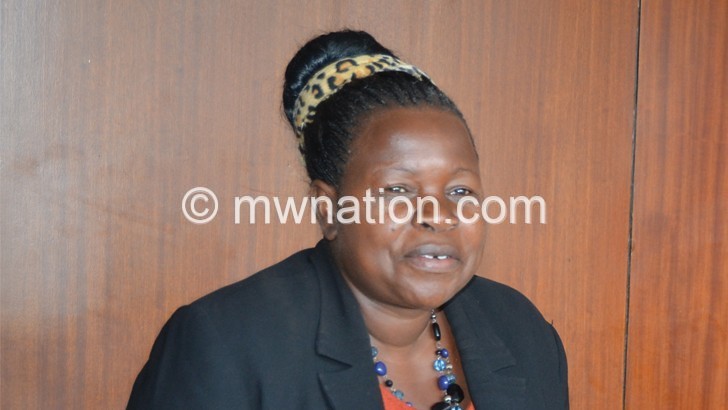Malawi has scored 39 percent in the Second Continental Report on implementation of the African Union (AU) Agenda 2063 due to slow pace in reducing the number of people that live below the poverty line.
The report, which rates Malawi as one of the countries that are denoting poor performance, also blames the country for increased cases of child labour and child marriages, low agriculture production and productivity as well as high malaria incidence rate.
Munthali: The national resource envelope is still very thin
But, on a positive note, the report has praised Malawi for making better strides in reducing the HIV and Aids prevalence rate as well as increased access to anti-retroviral therapy (ART). The report has also commended Malawi for increased access to electricity and the Internet.
The Agenda 2063 is Africa’s longterm development strategy aimed at achieving inclusive and sustainable socio-economic development over a 50-year period. The continent aims to achieve this objective through the realisation of five 10-year implementation plans.
It reads: “Areas where progress has been slow-reducing proportion of population living below the national poverty line; increasing agriculture production and productivity; reducing malaria incidence.
“Reducing proportion of children engaged in child labour and child marriage, increasing tax revenue as a proportion of GDP [gross domestic product] and increasing the share of ICT [information communication technology] in GDP.”
Malaria killed 2 500 Malawians in 2020 alone, translating into six deaths per day while over 6.9 million suffered from the disease in the same period, making it the most prevalent disease in the country.
AU Development Agency-Nepad chief executive officer Dr Ibrahim Assane Mayaki said the slow progress in some areas can be attributed to limited capacity for implementation, among other factors.
He said: “This was exacerbated by the global Covid-19 pandemic that has severely impacted all socio-economic aspects of life in Africa.
“It is clear that we must urgently re-calibrate investment portfolios in light of the reduced fiscal space at all levels of implementation of Africa’s development agenda.”
Besides being party to the AU Agenda 2063, Malawi is also implementing Malawi 2063 (MW2063) whose first 10-year implementation plan was launched last November by President Lazarus Chakwera.
The plan, estimated to cost $15 billion (about K12 trillion), outlines priority strategies and interventions to be implemented in the next 10 years to set Malawi on a path to actualise MW2063, the country’s long-term development strategy.
Last week, National Planning Commission (NPC) director general Thomas Chataghalala Munthali called on ministries, departments and agencies (MDAs) and local councils to be more creative and explore complementary financing mechanisms for their MW2063 designed projects and programmes.
He said Treasury may not be able to satisfy MDAs’ funding needs, especially given the volatile economic environment that has arisen lately from the Covid-19 pandemic as well as globally man-made economic shocks and natural disasters.
Munthali said: “The national resource envelope is still very thin at the moment against the massive competing obligations. We have no excuse in developing this country. Be part of the solution.”
Previously, the Anti-Corruption Bureau and the United Nations Development Programme (UNDP) have warned that MW2063 risks failure if corruption continues to worsen in the country.
The MW2063, which is being championed by the NPC, seeks to transform Malawi into an exclusively wealthy and self-reliant industrialised middle-income nation by the year 2063.
The post Malawi scores poorly on AU Agenda 2063 appeared first on The Nation Online.
 Moni Malawi
Moni Malawi 

